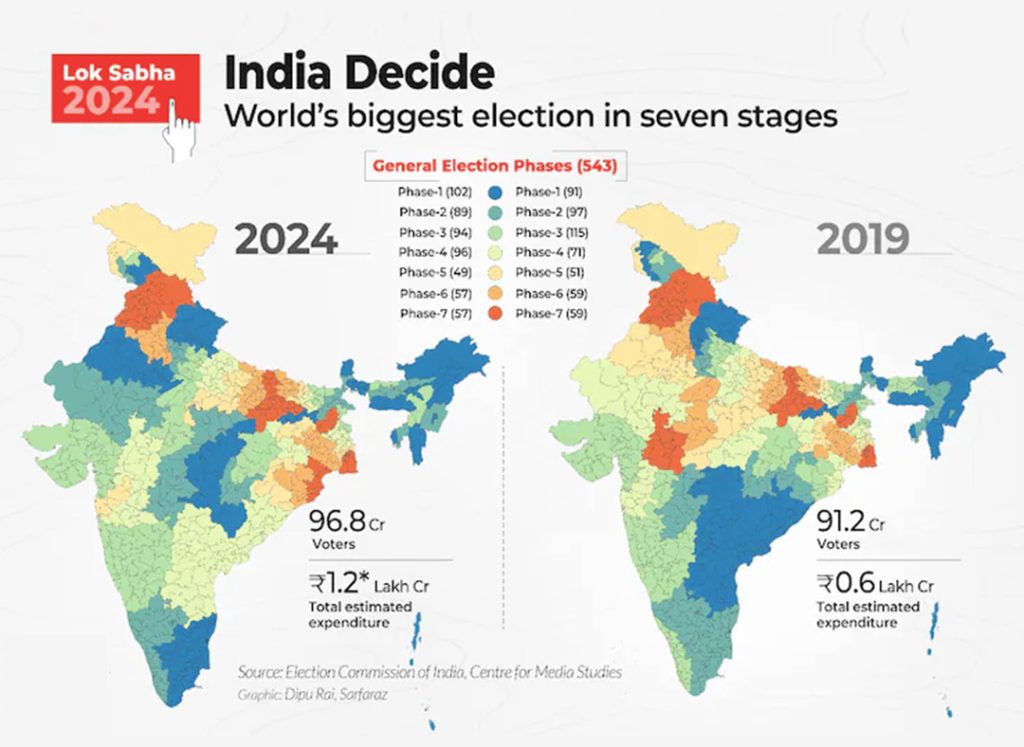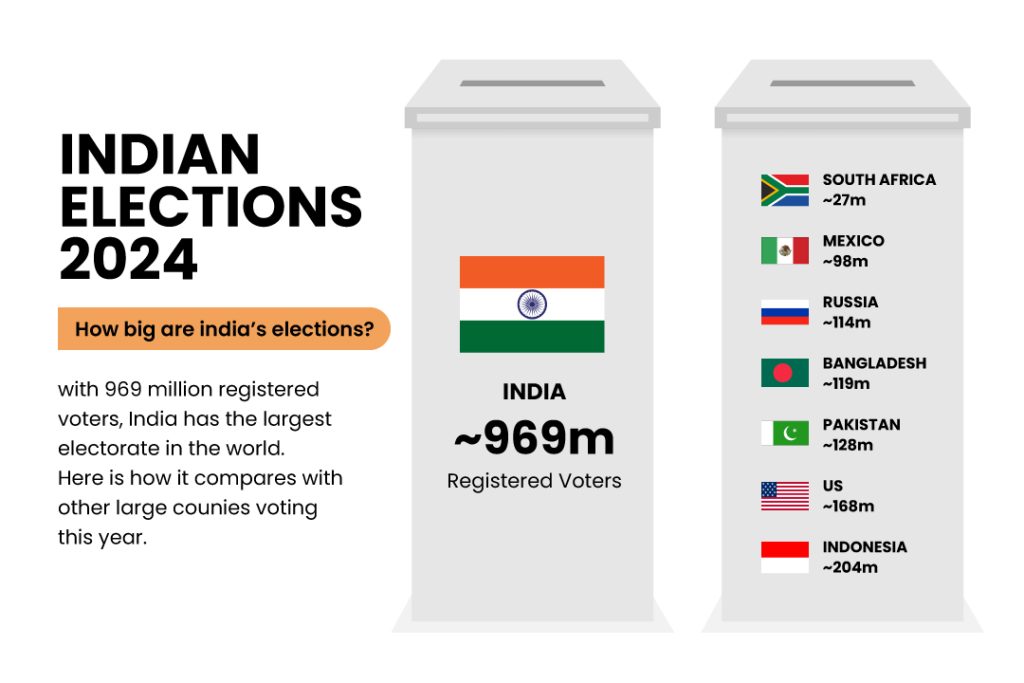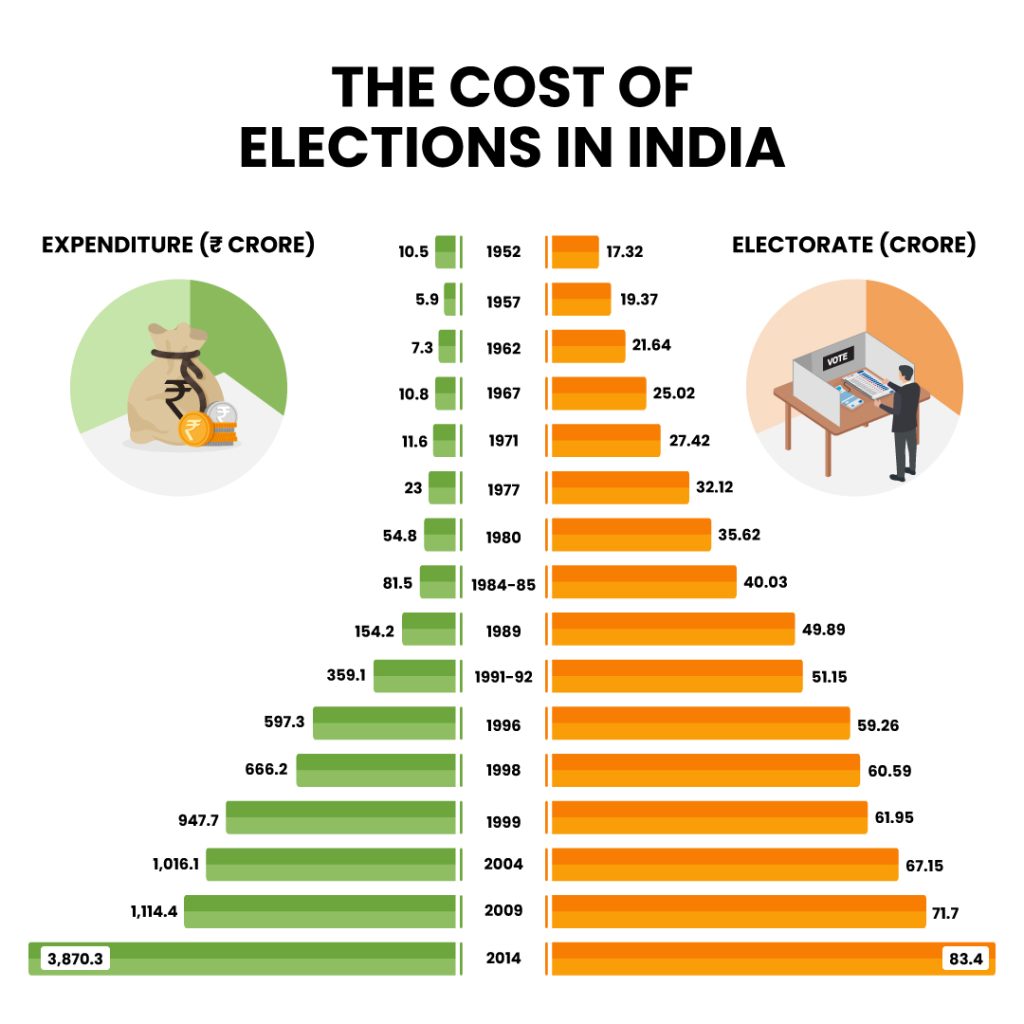Lok Sabha Elections 2024: The Capital Game Behind the World’s Biggest Election
Voting is already underway for India’s general elections—also deemed to be the biggest election that the world has ever seen.
As per the reports, a whopping 968 million citizens are eligible to cast their ballot and choose who they want in charge of the country for the next five years.
In terms of scale, manpower, and resources—this Lok Sabha election is the largest democratic exercise in 2024.

The polls to elect 543 MPs are running across the country in seven phases and over six weeks, ending on June 1. Orchestrating an election of this staggering scale is a monumental task for the country’s Election Commission (EC).
Apart from meticulous planning, effective management of working capital will be critical to ensuring the EC can fulfil its responsibilities efficiently and contribute to the smooth functioning of the electoral democracy. In this article, we will break down the costs of the general elections, how FinTechs are involved, and why working capital optimisation is key.
Breaking down the numbers of the costliest election in the world
When you look back at India’s first-ever election in 1951-52, it spanned 68 phases and cost INR 10.5 crore.
The costs of the most recent elections held in 2019 went up to a staggering INR 50,000 crore ($7 billion).
Going by previous years' trends, the 2024 election is expected to cost nearly double the amount of the last election, amounting to a massive INR 1,00,000 crore.

Taking into account the candidates' expenditure, each contestant can spend only up to INR 75-95 lakh (based on the region) for Lok Sabha constituencies. These spending limits have risen from about INR 25,000 during the first general election in 1951-52 The expenditure includes the amount spent on costs for campaigning such as rallies, public meetings, advertisements, posters and others.
Owing to a staggering rise in political consultancies coupled with the involvement of multiple campaign groups, and the growing influence of social media—the sheer scale of this year’s elections is expected to be bigger compared to previous elections.
Much of the expenditure is incurred primarily in procuring Electronic Voting Machines (EVMs), handling the logistics of the election, and social media campaigning.
Other notable expenses include deploying officials and armed personnel, setting up polling booths, and other administrative costs such as remunerating officials and volunteers for their poll-related work as well as running awareness programs.

During the Winter Session of Parliament, the Union Finance Minister, Nirmala Sitharaman, presented the initial instalment of supplementary demand for grants for the fiscal year 2023-’24 in the Lok Sabha. This allocation comprised an extra Rs 3,147.92 crore designated for expenses related to elections and Rs 73.67 crore for the administration of the EC.
Reports also confirm that the EC's budget has increased from Rs 236.6 crore in 2018-2019 to Rs 340 crore in 2023-2024 owing to a rise in the staff employed, which has gone up to 855 personnel in 2024 from 591 in 2022.
FinTechs are priming up to play a critical role in the elections
The Reserve Bank of India (RBI), for the first time, has requested online payment FinTech firms to be on the lookout for suspicious high-value transactions during the course of the Lok Sabha elections in 2024.
While over the years, banks have been in charge of keeping a check on the misuse of money to influence voters, the exponential rise of digital payments has brought FinTechs into the picture.
As a result, Payment System Operators (PSOs) and payment gateways are under scrutiny, and FinTechs are now bestowed with the responsibility of tracking suspicious financial activities and preventing any potential misuse of digital payment mechanisms to indirectly fund poll candidates or influence voters.
FinTechs have been mandated to closely track high-value merchant payments as well as recurring person-to-person payments.
Working capital optimisation will play a crucial role
The Lok Sabha elections in 2024, slated to span over 44 days, present a significant financial challenge.
Given the substantial costs involved and the extended duration of the electoral process, working capital optimisation will be imperative in efficiently managing the financial aspects of the Lok Sabha elections in 2024.
From robust cash flow management to cover operational expenses to mitigation of risks associated with unforeseen expenditures and logistical hiccups — efficient management of working capital will ensure that the financial resources allocated for India's Lok Sabha elections are utilised judiciously. It will further help in contributing to the successful and democratic conduct of one of the world's largest electoral processes.
Think Working Capital… Think CredAble!
